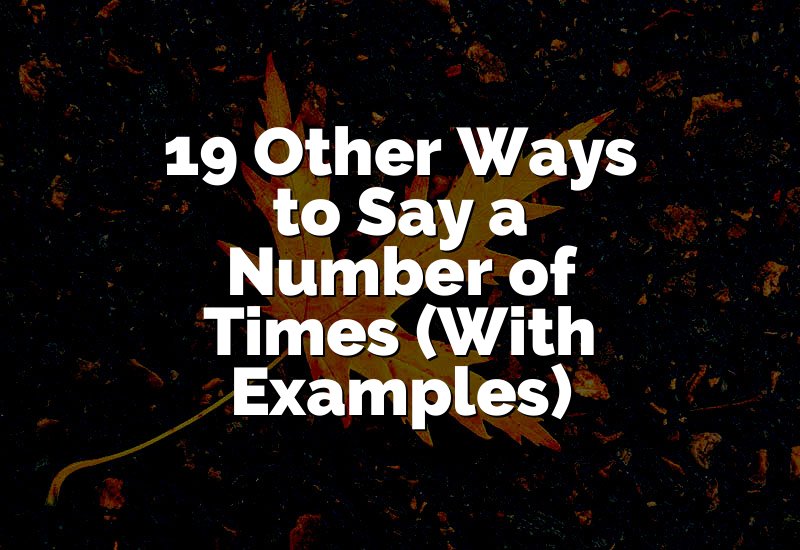You know when you have a big group of things and inside it there is a smaller group? That is what a subset is. In this article, we will explore many friendly synonyms like portion, division, or slice. You will see their meanings and examples so it all feels super easy, almost like chatting with a buddy.
| Synonym | Meaning | Example |
|---|---|---|
| Portion | A smaller part taken from a whole | She ate only a small portion of the cake. |
| Division | A separated section of something bigger | The company has a sports division. |
| Segment | A cut or section from a larger thing | He ate a segment of the orange. |
| Section | A smaller part of a bigger unit | The library has a section for kids. |
| Slice | A thin piece cut from something larger | She gave me a slice of pizza. |
| Piece | A part taken from the whole | He dropped a piece of the puzzle. |
| Share | A divided part given to someone | Everyone gets an equal share of the money. |
| Fragment | A broken-off part | She found a fragment of glass. |
| Chunk | A thick or heavy part | He ate a chunk of bread. |
| Part | A portion of something bigger | This is part of my daily routine. |
| Lot | A group or portion considered together | He sold a lot of books. |
| Group | A collection of smaller units | The group of kids played outside. |
| Class | A category or smaller division | She belongs to the honors class. |
| Category | A type or division in a system | This book fits into the fantasy category. |
| Subgroup | A group inside a bigger group | A subgroup of fans started cheering loudly. |
| Fraction | A small numerical part | Only a fraction of people agreed. |
| Division | A separated portion of a whole | The land was split into several divisions. |
| Subdivision | A smaller part formed from dividing | The city built a new housing subdivision. |
| Module | A separate unit in a system | The course has five learning modules. |
| Segmental | Related to parts cut or divided | The pie was cut into segmental pieces. |
| Portioning | The act of dividing into parts | The teacher was portioning the candy fairly. |
| Subcategory | A smaller type within a category | Dogs are a subcategory of animals. |
| Sector | A part of an area or system | The tech sector is growing fast. |
| Compartment | A divided part of a container | He opened the top compartment of the bag. |
| Element | A basic or smaller unit of something | Water is made of the element hydrogen. |
| Component | A piece that makes up a system | The phone has many small components. |
| Divisionary | Something relating to divisions | The map shows divisionary lines. |
| Parcel | A separated piece or package | The farmer sold a parcel of land. |
| Unit | A single part of a whole system | The family is a strong unit. |
Portion
A portion is when you take a smaller part out of something bigger. It could be food, money, or even time. We often use this word when dividing something fairly. For example, you may eat a portion of rice instead of the whole plate. Also, you might give a portion of your income to savings. It helps describe sharing or dividing in a simple way.
- She ate a portion of the pie.
- He set aside a portion of his salary.
- I only need a portion of your time.
Division
Division means splitting something into smaller groups or parts. It shows that the whole thing has been separated into clear sections. You might hear this word in school when solving math problems, or in business when companies create special branches. It always means one big thing is broken into smaller and easier parts. It makes organizing easier and clearer.
- The company created a sports division.
- The country was divided into four divisions.
- He studied the science division at school.
Segment
A segment is like a small piece cut from a bigger whole. You often see this word when talking about fruits, like an orange or a grapefruit, which naturally break into segments. But it is also used for bigger ideas, like dividing a market or a story into smaller segments. It is a neat way of saying part of something.
- She ate a segment of an orange.
- The show aired a new segment tonight.
- That market segment is growing quickly.
Section
Section is another word that means a smaller part of something larger. It is common in libraries, stores, and even stadiums. A section helps us find or organize things better because everything is grouped into smaller units. It is useful for explaining how something big is broken into easier parts that we can focus on separately.
- The library has a kids section.
- We sat in the front section of the theater.
- That section of the store sells shoes.
See Also: MISALIGNMENT Synonyms | 26 Similar Words
Slice
Slice means a thin or flat piece cut from something larger, like bread, pizza, or cake. It gives a feeling of cutting something neatly into smaller parts. People often use this word when sharing food, but it can also describe time or even life moments. Slice shows how the big whole can be divided into manageable and shareable parts.
- She gave me a slice of pizza.
- He cut a slice of bread.
- Life has given him a slice of happiness.
Piece
Piece is a very common word to show a part of something larger. It is simple, short, and flexible. You can use it for objects, ideas, or even art. A piece can be small or big, depending on what is left from the whole. It is often used in puzzles, jewelry, or clothes to show one single part.
- He found a missing puzzle piece.
- She bought a new piece of jewelry.
- I will take a piece of that cake.
Share
Share is when something is divided and given to others. It is not just about taking; it is about giving too. You may hear it in families, friendships, and business. Everyone gets their share of what is divided. It is a warm and positive word because it usually involves fairness and kindness. A share can be food, money, or even feelings.
- Each student got a share of the candy.
- He took his share of the profits.
- She gave me her share of the story.
Fragment
Fragment means a broken part of a whole. It often describes something cracked, shattered, or incomplete. You can find fragments of glass, stone, or even memories. Unlike slice or portion, a fragment does not always look neat or planned. Instead, it feels like something left over after breaking. It shows how even small parts can still be important.
- She picked up a fragment of glass.
- A fragment of the vase was on the floor.
- He remembered only a fragment of the story.
Chunk
Chunk means a large and solid piece. It is often used for food, like a chunk of meat, cheese, or bread. But it can also describe parts of time or text, like a chunk of information. This word gives a feeling of heaviness and thickness compared to a thin slice or small piece. It makes things sound bigger and more solid.
- He ate a chunk of cheese.
- A chunk of ice fell from the roof.
- She read a chunk of the book.
Part
Part is one of the simplest ways to say a smaller section of a whole. It is very flexible and can be used in almost any situation. Something can be a part of a machine, a part of your day, or a part of a team. It shows connection because even though it is smaller, it belongs to the whole.
- This part of the car is broken.
- He spent part of his day reading.
- She plays an important part in the group.
Lot
Lot can mean a group, a batch, or a portion. It is often used when talking about sales or collections. For example, auctions often sell items in lots, which means groups of things together. It can also describe land or property. This word gives the idea of a whole set or part that is counted as one.
- He bought a lot of books at the auction.
- The farmer sold a lot of land.
- A new building stands on that lot.
Group
Group means a collection of smaller things or people gathered together. It is very common in daily life. People form groups to work, study, or play. Objects can also be put into groups to make them easier to understand. A group can be small or large, but it always connects the smaller parts into a whole.
- A group of kids played outside.
- He joined a study group.
- The teacher divided the class into groups.
Class
Class means a set or category of things with something in common. In schools, class means a group of students learning together. But outside of school, it can also describe a category of objects or ideas. A class often shows order, because everything inside it shares similar qualities. It is like a smaller box inside a bigger system.
- She is in the math class.
- The car belongs to a luxury class.
- He joined a yoga class.
Category
Category is used when sorting things by type. It means a set inside a bigger system, based on certain qualities. Books, movies, or even products are placed into categories to make them easier to find. This word shows how things are grouped neatly so people can understand them better. It is very useful in daily conversations about types.
- The movie fits into the comedy category.
- That product is in the electronics category.
- Birds belong to the animal category.
Subgroup
Subgroup means a smaller group inside a bigger group. It shows a clear structure, where one large group is divided into smaller teams or units. For example, within a class, there might be a subgroup for group projects. It is a word that helps describe organization and how big things can be split into smaller groups.
- A subgroup of fans cheered loudly.
- The teacher made a subgroup for science.
- He joined a subgroup within the main club.
Fraction
Fraction means a very small part of something whole. In math, fractions show numbers divided into parts, but in daily life, it means just a tiny bit. It can describe amounts, chances, or pieces. People often use fraction when they want to show that something is not big but still noticeable. It helps describe scale in a clear way.
- Only a fraction of people came.
- She gave me a fraction of her time.
- He ate a fraction of the cake.
Subdivision
Subdivision means a part that comes from dividing something larger. It can describe areas of land, like a housing subdivision, or smaller sections inside an idea or group. It shows how something continues to break down into more parts. Subdivision is often used in official, planning, or organized ways rather than random divisions.
- The city built a new housing subdivision.
- He lives in a quiet subdivision.
- The land was divided into subdivisions.
Module
Module is a word for a separate unit that is part of a bigger system. Schools and training programs often use this word for courses, and machines or computers use it for parts too. It helps show that while the module stands alone, it also connects to the whole. It is neat and organized.
- The course has five modules.
- The software module needs an update.
- He passed the training module.
Segmental
Segmental means related to segments or parts. It is often used when something is divided in a structured way, like segmental divisions of a pie or a project. The word focuses on how something can be broken down into separate pieces. It makes it clear that the whole is not random but split neatly into smaller parts.
- The teacher explained the segmental units.
- The pie was cut into segmental pieces.
- They studied the segmental system.
Portioning
Portioning is the act of dividing something into parts or pieces. It is often used when food is being shared or given out. But it can also describe how money, work, or even time is separated. This word shows the process of making fair and balanced parts. It makes people feel things are shared in an even way.
- She was portioning the rice for dinner.
- The teacher was portioning candy fairly.
- He worked on portioning his time wisely.
Subcategory
Subcategory means a smaller type inside a larger category. It is a way to narrow down and organize things. For example, animals can be a category, and birds can be a subcategory. It is useful when you need to show that one group can still be broken down further into smaller, more detailed groups. It helps with sorting.
- Dogs are a subcategory of animals.
- Fiction is a subcategory of literature.
- Rock is a subcategory of music.
Sector
Sector means a part of an area, system, or industry. People often use this word when talking about business, economy, or even a city map. It helps show how one large thing is divided into specialized parts. For example, the health sector or the technology sector. It highlights focus and direction in each part.
- The tech sector is growing quickly.
- The city has an industrial sector.
- He works in the health sector.
Compartment
Compartment means a separate space or container inside something bigger. Think of a suitcase with small compartments or a train with passenger compartments. It is used to describe organization and how different things are kept apart. A compartment helps keep everything neat and easy to manage. It shows smaller spaces inside a larger unit.
- He opened the top compartment of the bag.
- The train has sleeping compartments.
- She placed the letter in a secret compartment.
Element
Element means one of the basic parts of a bigger whole. It could be in science, like chemical elements, or in daily life, like the elements of style or design. The word makes you think of building blocks, the small pieces that come together to create something larger. Each element has its own role but also fits into the whole.
- Hydrogen is an element of water.
- Kindness is an element of friendship.
- Fire is a natural element.
Component
Component means a piece that makes up a larger system. Machines, electronics, and structures all have components. Each one is important because without the component, the whole system may not work. It gives the idea that many parts must fit together perfectly. It shows teamwork between the smaller pieces and the whole unit.
- The engine is a key component of the car.
- The phone has many components.
- Education is a component of success.
Divisionary
Divisionary means related to making divisions or separations. It may not be as common in daily talk, but it is useful for describing lines, areas, or ideas that separate into parts. It is connected to the idea of breaking a big thing into smaller pieces. It highlights the act of division and organization.
- The map shows divisionary lines.
- They worked on a divisionary plan.
- Divisionary steps were taken to organize the land.
Parcel
Parcel can mean a piece of land or even a package. When talking about land, it means a smaller part that is separated from the bigger area. When talking about packages, it means something wrapped and delivered. Either way, the word shows a piece that is clearly cut off from a larger unit. It feels practical and useful.
- The farmer sold a parcel of land.
- She received a parcel in the mail.
- They bought a small parcel near town.
Unit
Unit is a single part of a whole system. It can be a family unit, a unit in math, or a unit in the army. It shows how smaller pieces join together to form something larger and stronger. A unit often stands on its own but also connects with others. It is a strong and simple word.
- The family is a close unit.
- He learned a new math unit.
- The army unit marched forward.

Final Thoughts
All these words show different ways to say subset. Each one has its own feeling and use, but they all connect to the idea of smaller parts inside a larger whole. By using these synonyms, you can make your writing and speaking richer, more colorful, and more fun.









